#full evil villain in the most cartoonish way
Explore tagged Tumblr posts
Text


"Professor Takada"
babe he's got the entire squad what are you talking about


"Our project"
you mean "your project" traitor
🤨🤨🤨🤨🤨🤨

kjsd;fjlakasdjflkas;dfj
OLTECA GOT OUT A FKING KNIFE
#I love Olteca#he's such a squid bastard#full evil villain in the most cartoonish way#it's so funny to mee#but yeah I still think Takada's a traitor#don't ask me why dude was too eager to help with the driver earlierr#bet it's cuz he wanted to get his dirty little hands on it#real fking funny if he's not a traitor and I'm slaughtering an innocent man LOL#my thougts#kronthescoup#ikki why is ur demon so cringe#kamen rider revice#revice#george karizaki#who let george into the bathhouse#juuga vs. olteca#kamen rider juuga#inbetween baths#2 george
2 notes
·
View notes
Text
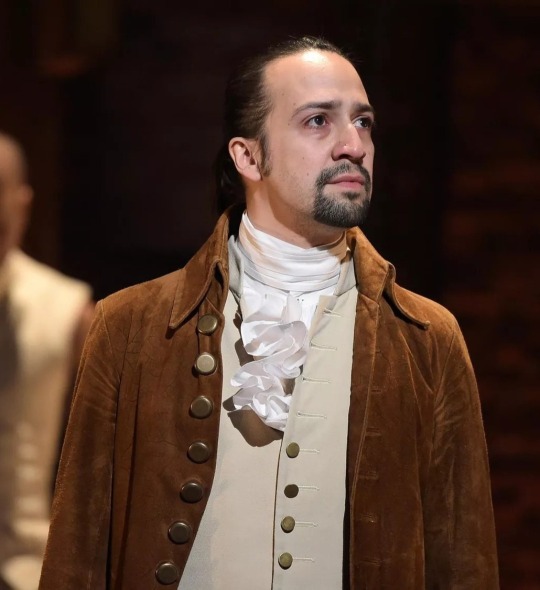
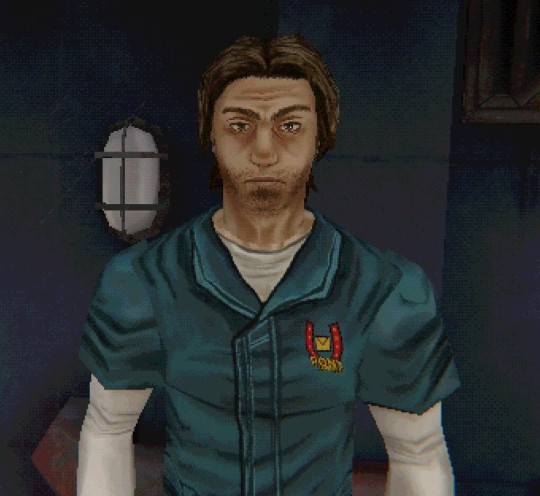
Round 3
Propaganda why Alexander Hamilton is insufferable:
"Literally sick of hearing about this guy and his musical. I do not care about Lin Manuel Miranda's masturbatory self insert-ification of an actual slave owner but. He is everywhere. Rapping stupidly. Also just a shitty person even in the play. "Show me how to say no to this" easy, N. And then an O. I wish I never had to hear about Hamilton. And I hate his voice. That's annoying too."
"Only cares about himself. When he fears he's going to get outed for cheating on his wife, he is not concerned for Eliza's wellbeing whatsoever, he's just concerned with his reputation.
Dumb as fuck. When his son wants to duel, he tells him to *attend the duel bc the other guy will be nice and miss on purpose*.
Written to be The Most Desirable Man Ever™️. Self-insert (derogatory). The way he treats other people and the way he refuses to learn lessons make listening to the musical impossible."
"He's so annoying?? And full of himself?? Gotta say I quit watching after the intermission because I could not deal with him. No redeeming qualities."
Propaganda why Jimmy is insufferable:
"The most chillingly real depiction of one of those men that think the world owes them everything. He's a rapist, a misogynist, abelist, self-centered, abusive, terrible friend and person that gets everyone killed because he was big mad about being laid off. It shocks me that there are apparently people out there that play the game and like him. He's so evil, but never in a way that makes him cartoonish, and that makes him all the more terrible. The game lays it out itself: he won't take responsibility for anything. He is never the villain in his own eyes. Scumbag."
"Tbh he's not just insufferable. He's disgusting. I can't even list all the horrible things he did because they would need multiple trigger warnings. He thinks that he's so high and mighty to the point where he betrays his own captain so that he can take his place, and then blames his actions and the ship crashing on said captain, who was actually trying to save them. So all of the crew died in one way or another (because of Jimmy's actions) thinking that their captain betrayed them when really if was him. And a quick Google search can tell you all the really nasty shit that he did. So not only is he insufferable, he's also just a horrible human being."
"Listen, I'm not even in the fandom and I know what his ass did. Screw this guy"
"Bro never takes responsibility for anything he did. Assuming he even acknowledges it *vaguely motions at what he did to Anya*"
"SA, causing a ship to crash, murder and elongating his friend's suffering in a cryopod for 20 years"
"He's literally the worst. He's a rapist, he framed his friend for attempted murder-suicide after getting him mutilated, and he either directly or indirectly killed everyone else. He's such an unreliable narrator that it's difficult to tell how the others of the Tulpar crew actually are because he sees everyone as beneath him."
"rape, murder, just generally being an asshole"
"LITERALLY A RAPIST"
#alexander hamilton#hamilton#jimmy mouthwashing#mouthwashing#insufferable protagonist poll#insufferable protagonist tournament#tournament poll
18 notes
·
View notes
Note
I just want to know what Ewan meant by Aemond being gray this season as opposed to being completely black last season (which he wasn't). Aemond's "different shades" so far have only been shades we've already seen in s1, he actually had more emotions after Luke's death than he did in s2 and we saw glimpses of his vulnerability in ep9. He even felt grief for Viserys of all people (confirmed by the script). Was Ewan really talking about the two brief brothel scenes that took less than two minutes of screentime? And if Aemond does banish his mother.... That's something I can see the showrunners doing because women must always suffer from evil men, but that's so cartoonish at this point, I can't take it seriously. They can't have Alicent leaving her daughter but they have to remove her from Kings landing before the fall because god forbid show Alicent would defend the city like her book counterpart... This is insane. Why does everyone get new storylines and Emond just becomes a scapegoat for the showrunners who have to take the blame so everyone else gets whitewashed, but he can't even get proper time for his villainy? They're only turning into a boring villain. But I'm just really confused why would Ewan say that one of Aemond's motivations is to make his mother happy (in his mind) if he treats her like that? And that Aemond remembers Driftmark and how she was the only one who stood by him. Or this is another lie from Ewan just like "Aemond's redeeming quality is his loyalty"? I don't like it when the cast is setting the expectations only to subvert it on screen.
Hello!
Right, I (just like pretty much everyone in the fandom, I believe) noticed the discrepancies between the things Ewan said in the interviews and what we have (or haven't) seen on screen. To be fair, it concerns other actors as well (like Tom stating multiple times that Aegon and Aemond love each other no matter what and talking about Aegon's growing respect for Helaena, Fabien mentioning "he wants what she wants" thing about Criston and Alicent, Steve painting Corlys and Rhaenys' marriage in a better light that it actually looks in the show) with Aemond/Ewan situation merely being the most glaring example. And the reason it is the most glaring example is that Aemond IMO got the clumsiest and most meaningless character butchering of them all.
As for the reasons the actors (Ewan among them) keep misleading the viewers, there are several possibilities (that can - and IMO do - coexist):
While I don't think HotD cast are merely parroting the words put in their mouths by HBO team, the latter definitely give them some instructions with regards to the way they are supposed to talk about their characters and the things they need to/can't say. So, in some cases, the actors basically have to deceive the audience.
For some time now I've had an impression that the actors don't have full information on which scenes actually make it to the final version and which get cut before they see the show (once again remembering Matt Smith not knowing about "Daemon fighting Crabfeeder and his army" scene being a silent one for his character). And even if they are actually told beforehand which scenes are included in the show, I think that actors' perception of their characters are influenced by every scene they filmed (and even by some they didn't - but that's point number 3). So, during the promo the cast might take into account some scenes or plot points that we, the viewers, might never even learn about.
Each actor has their own view and opinion on their character - and this view is based not only on the script but on their own thoughts and even headcanons. I believe that is the case for the brotherly love (albeit a "weird" one) that Aegon and Aemond feel for each other according to Tom (by the way, he also mentioned the readiness for backstabbing between them being a mutual thing - define backstabbing) or for Aemond having some kind of love for and loyalty to his brother according to Ewan (define loyalty). In part this also might go for the "coloring" assigned to Aemond by Ewan.
There could be one more adjacent reason - and the saddest one: Ewan is not happy with the way Aemond's story is being told in the show (it could be noticed during several moments in the promo) and was trying his best to make the audience see the Aemond that he sees. And, well, I can't speak for other people (either fans or casual viewers) but I personally don't have it in me to judge him (or any other HotD actor doing the same thing) for it - even though, just like you, I'm not fond of being misled. Imagine giving so much thought, time, energy and love to a character, having high hopes for his development - only to be given... this. Combine it with the point number 1 (at best actors are not allowed to reveal much of what's actually going on with their characters during the promo, at worst they are told to tell lies or half-truths) and the fact that Ewan has very little experience in the 'doing promo' department - and we might just get what we, in fact, got.
23 notes
·
View notes
Text
It always annoys me when a villain is written as complete evil in every single aspect; like cartoonishly evil, but the narrative treats it seriously. And the villain isn't even a demon or something that's SUPPOSED to be thoroughly evil with no redeeming features by their very nature, they're just a person.
Like, I don't require Nuanced Morally-Grey Antagonists everywhere; sometimes the narrative requires a character you can point to and go "what a dickbag who seems determined to make life worse for everyone else". But when you go overboard with it, then it just ENDS UP as "cartoonishly evil", no matter how much they were supposed to be "sinister and threatening".
The villain doesn't need to have aspects of their life where they're actually a decent and kind person; it can add extra dimensions to the character, but it isn't a necessity. However, they NEED some aspects where they're "morally neutral", or at worst "kind of a dick" (unless you're going for "cartoon ham and villainy"), if they're not like metaphysically constrained to evil. (...and even if they ARE, because it's not like a single demon can specialize in ALL the forms of vice.)
If you think you need to write in a scene of the villain specifically choosing to eat live snails because they like to watch things suffer and die, or that you need to specify that the villain's sexual misconduct is something extremely taboo, because how else will the audience know that this character is a horrible person... then you are bad at writing. (Or maybe just bad at judging your own writing, that's possible too.) There's PLENTY of ways to make a character unsympathetic, and most of them can also serve double duty to tell us about the world or the other characters or the villain's backstory, or give foreshadowing, etc. Plus, "petty dickishness to people who just have to smile and take it" gets a MUCH stronger response of "fuck this guy in particular" than any amount of burned orphanages.
...None of this is to be taken as saying that you SHOULDN'T have a cartoonishly evil villain. Those things can be great; the character you love to hate. However, that should only be used if "cartoonish level of obvious evil" is intentional; if you're going for something comedic, or if the villain knows full-well that they're evil and they're just having a grand old time with that whenever they can get away with it. But if that's NOT what you're going for, tone down the "evil" a bit; it'll make what's there, more effective.
9 notes
·
View notes
Note
idk if you've heard yet, but the newest chapter was leaked!
(ok apparently posting links in asks have gotten weirder ugh)
Ty for letting me know! What are your thoughts on it, if you feel like posting about it?
Here's the link for anyone else who hasn't seen it yet
And my thoughts and a couple more asks under the cut, ty for the asks!
Anonymous asked:
What are your thoughts on the latest chapter? It was centred around Casca. Also idk if you already knew but there’s another chapter coming out a month from now. Which is kinda insane for berserk lol
Yeah I'm glad we're gonna get another string of chapters instead of just occasional chapters in isolation.
And my thoughts are: whatever lol.
Like, it's basically what I expected. The magic-induced stupor Casca's in is both boring and shitty for people who wanted Casca to exist as a character, but for me it's also reassuring in that it prevents most things I don't want to happen from happening lol, and it keeps Casca's trauma and big emotions on ice for a while longer because I'm still hoping for the behelit to be hers. If Casca's a full character then I risk disappointment with how her trauma is handled and what she chooses to do. If she's a drugged up damsel in distress who occasionally wakes up enough to punch a guard then I don't have to care, basically. Cool, go through the motions, I'm not invested in this part of the story so idgaf. Sucks to be Casca, same as it ever was.
She's finally got an animal association, and yk, I don't mind it. I can roll with raven for her. (plsplspls say it's laying the foundation for her apostle form pls)
I would like to imagine there's some meaning to be gleaned from Danann putting Casca in a dress to go see Guts and Casca wearing a kind of similar dress here in Falconia (feathers, head-piece) but probably the only throughline is Casca not getting to choose her own clothes/highlighting that she prefers to wear pants.
The moment she wakes up was mildly interesting, I'm glad the memories were of Farnese and co even if she did start fretting about Guts lol. There's a subtle zig-zag pattern in the last drop of water before she wakes up and starts fighting guards:

Which may be absolutey nothing, but made me think of the Beast of Darkness and gives me hope for Casca's inner darkness.
Anonymous asked:
I’m sorry bthump but after ch372 it seems like the story is indeed heading in the direction of Gutsca being endgame and Griffith being this manipulative machiavellian emotionless type villain, that last panel of him looks so exaggeratedly evil
Idk, I mean we already knew Casca still has ~feelings~ for Guts, it's not surprising to me that she'd dream about being carried away from him and think about him. It's not great, but it didn't majorly disappoint me or fill me with dread. If anything it makes Guts' sword obsession even funnier lol. Talk about emotional one-sidedness.
And rather than feeling terribly romantic, that moment when she fights the guards and thinks that she has to get back to Guts or he'll... makes me think she's anticipating Guts walking into a trap to rescue her, which, yk, is probably what's going to happen lol, unless this sword crisis resolves in a way that gives Guts an upper hand/a better plan B. But again, it's not surprising, the only thing I'm really curious about is what's going to happen when Guts gets here.
Though it does make me a little concerned that enough time has passed during this chapter that we're skipping over Guts' side of the story for a while and he might actually show up soon? We left his story on a cliffhanger so I feel like that would be stupid, and when I read the chapter I parsed it as like, Casca's first day as a damsel, but upon re-reading it's more likely one day in the life after days/weeks/months, so who knows?
And Griffith's cartoonish evil smile is dumb but I don't care honestly, I already got over it last chapter which also ended with an evil grin lmao. I know Miura would draw him with an ambiguously neutral expression so I just substitute my own in. I don't think it's a sign that he's going to be a 2 dimensional cackling villian, though frankly if he is I'd still chalk that up to non-Miura writing lacking all nuance and subtlety. What I imagine is in the future for Griffith though is more evil smiles, some Guts taunting, and then like, a crumbling of the facade in a moment of truth. It's just that the facade is no longer mildly neutral it's smug sinister evil because the new crew can't draw him.
Though man I read your ask while I was still at work before I could read the actual chapter and I was like 😟. But also I appreciate it lol bc you gave me the chance to brace myself for the worst, so I ended up pretty neutral on this chapter rather than disappointed.
I see a lot of people very annoyed with this chapter (and the continuation as a whole), and like, I get it because it objectively largely sucks lmao, but idk, I guess I have very low expectations for the continuation of Berserk comparatively. I'm no longer here for a good emotional story, I'm here to find out how it ends. I'm reading the cliffnotes version as far as I'm concerned, just scanning it for clues that point towards my desired ending.
37 notes
·
View notes
Note
Overall Thoughts on ATLA?
It is INCREDIBLE. The character arcs, especially Zuko's, are EXTREMELY satisfying. The characters are all fun, memorable, and distinct. I'm really impressed with how they portrayed war and its effects on people. I also thought the fight scenes were amazing, and I appreciated that there isn't a lot of talking during them; your focus is supposed to be on the choreography of the fight.
My favorite characters are Zuko and Iroh. Their dynamic was always enjoyable to watch, from start to finish. Zuko being happy his uncle got his own tea shop and gladly helping run it was honestly super touching to me, and them being wonderfully coordinated like in the Earth King's palace was a testament to how much they understood each other. I also appreciate how Zuko acknowledged multiple times how he treated his uncle was terrible, and he didn't try to make excuses when apologizing to him.
Aang's character growth through the books was extremely real and relatable. His struggle with being the Avatar and having to defeat the Firelord was very sympathetic, and he was a delight to watch. His love for his friends always made me root for him, and watching him interact with Appa, Momo, and other animals was what really endeared him to me.
Katara was very fun to watch, especially interacting with sassy characters like Sokka and Toph. I felt for her when she realized she had a chance for revenge on her mother's killer, but ultimately couldn't go through with it despite wanting to.
Sokka had probably the second most character growth in the series. He started out as a food-oriented jokester, but he grew and matured into a true warrior by the end. I appreciate that the Gaang recognized that Sokka was a vital part of their group, and none of them looked down on him for being a non-bender, and neither did the writers. While he was obviously weaker against benders, he was always protrayed as smart, quick on his feet, and serious when he needed to be.
Toph was incredible. Her desire to break free from her parents' restrictions was very relatable, and I loved how the series didn't make her any less stronger than the other members of the Gaang despite her disability, but also never ignored it. And her inventing a whole new bending style due to her specific circumstances was AMAZING to watch.
The side characters were all very memorable and fun to watch. I was never bored watching them, and I was ecstatic when a ton of characters we'd met over the series were brought back for the finale.
The villains were also extremely real and intimidating. The series didn't show Ozai right away, instead building up to his appearance as we learned more about the Fire Nation's heinous actions, which I thought was wonderful. He wasn't cartoonish or evil in a way that made me think he couldn't exist in the real world; he and the other villains felt like actual people with viewpoints you could understand but condemned.
I also liked the redemption arcs for side characters like Mai and Ty Lee. Their arcs obviously didn't get as much focus, but their final rebellion against Azula felt very realistic and earned.
And the WORLDBUILDING. Oh MAN. The settings were gorgeous, the different clothing styles for the nations were beautiful and distinct, and they felt so full of life and lived in, from Ba Sing Se to the Southern Water Tribe.
So yeah, those are my thoughts on ATLA! Let me know if you want me to elaborate on anything.
5 notes
·
View notes
Text
“Can you repeat ?”
The woman before you adjusts her glasses. You hate her. You hate her since she has come into your house. You hate her more when she opens her mouth to say:
“Frankly sir, I don’t know why that seems so surprising to you. The facts are damning. Every year on Earth, the number of cartoonish villains is on the rise. You have evil CEOs and corrupt politicians that would make children scoff if they were in a movie. Civilians protests are...fine, I suppose, but we spirits of the earth have decided to help. Magical girls is the only logical solution to that evil. I am the representative of the Dawn goddess, and I have come to bless someone in your family to save your world.”
She doesn’t say “whether you want it or not”, but somehow the way she pronounces her last sentence makes her intention more than clear. Her glasses shine. You clench your fist, but your wife breaks first:
“Maybe when gods will stop being so condescending towards us and clean their own mess we will listen to them, but I am not going to let any of my daughters near you.”
“They’re both eight year old,” you add.
“It’s a traditional age to begin.”
“Tradition can change, in fact I’m all for putting your glasses in a nontraditional place in your -”
“It doesn't have to be your daughters. You could do it.”
Your wife stops her menacing walk, surprised:
“Who, me ? But I have a full-time job !”
“Your husband, then.”
You tilt your head, confused:
“Me ? But I’m…”
You point to yourself, a thirty-seven-year-old, arguably quite muscular guy:
“I mean...I don’t think I fit the picture. I’m a man, to begin with.”
“Oh, don’t be stereotypical. Men can make very decent magical girls if they want to, just as they can be princesses.”
“He does get grumpy if there’s something bumpy under the mattress”, helpfully offers your wife, while you glare at her.
You bite your lip. It’s been a couple of years since you’ve been unemployed. You’re very happy to spend your time with your daughters, but the cost of living is what it is and your spouse works way too much to support your family.
“How much is it paid ?”
The woman with the glasses says the price. Your jaw falls on the floor and you say yes before you have the time to think more.
It’s hard at first. You don’t know much about magical girls to begin with, but you live under the same roof as some experts. Your daughters are very happy to brief you on the subject. You spend hours of intensive training watching old anime on the couch together, while you stuff yourselves with pop-corn (everyone knows that fighting with an empty stomach can do no good. All these girls running with their toasts in their mouths must have a lot of trouble digesting.) You take notes while your daughters explain to you the potential risks, reenacting situations with their toys (you don’t want to notice most of them have lost a limb too much).
The transformation...is nice. Your don’t feel any pain in your joints anymore. Suddenly gravity had no hold on you, no matter how much Training Pop-corn you ate. You can make huge leaps, you feel an ancient power running in your limbs, and your skin is suddenly extremely smooth and glittery. Your main complain is the suit. You desperately try to find a compromise, but the woman and her boss don’t budge an inch: everyone knows that the costume is the most important part to strike terror into your foes’ heart. You don’t know how a weird tutu can do that, but the fluffy skirt is now your nemesis. As you represent the Dawn spirit, it is all pink and orange, and it sparkles so much you want to bring sunglasses with you. The wand shines just as much. The only part you really like is your necklace – a lot of pink hearts made in modeling clay assembled together by a string stolen in the kitchen – because it’s not part of your official costume, but your daughters made it for you. You couldn’t be more proud of it, because if your girls think you’re cool, you’re doing something right. Maybe you’re rocking this costume after all. That’s what’s your wife pretends anyway (even if she changes the subject when you ask if she’d like to wear it someday, the traitor.)
You begin your actual work. It’s the simplest job in the world. At night, you go after a cartoonish villain on your list, break into their lair, point the finger at them dramatically, and if they haven’t changed their lifestyle somehow after your impassioned speech about virtue, you fight them in a duel. (That’s the part you like best. Punching them in the face is your special move. You found this all by yourself.)
To everyone’s surprise, it turns out that an actual trained adult makes better results that a fifth-grader. You win fights in a row, your popularity rises, until the dreaded day when the cartoonish villains decide to counterattack. They invoke their own dark gods, and one dreary night a magical girl all dressed in black rises from the shadows to meet you. You have equal magical powers. But...she’s a teen. She’s literally a teen. You’re not going to raise a hand on a fourteen-year-old who looks like she needs twelve hours of sleep. So you take your scariest voice, the one you use when you discover someone has somehow stuck a pink unicorn on the ceiling (you’re still shivering about that), and you ask if she has done her homework. If not, she’s going to have a lot of problems in life, and she’d better study ! She says no, that she doesn’t care about homework, that you’re cringe and just a mean sexist who doesn’t understand her, and she charges.
Two months later, you sign the adoption papers. Twilight still thinks you’re cringe, but now she says it with a mouth full of pop-corn on your couch (you make very good Training Pop-Corn). To go with your costume, you wear the black ear-clips she gifted you for your birthday. The villains, being cartoonish, thinks that it’s all her fault, and try again. The next year, you have eight daughters.
You still have problems with money.
*
Back to Fantasy Masterlist
magical girls are real, and you have been chosen by a magical creature to become one. The only problem is your a full grown man with 2 kids and a wife.
#writeblr#writers on tumblr#original fiction#creative writing#writerscommunity#fantasci writing#fantasci tumblr#writing snippet#writing drabble#my writing#fantasy#magical girl#fluff#idk how to tag this
52K notes
·
View notes
Note
(2/2)
Now, onto Curly and Jimmy themselves. I feel like you encapsulated them so well. A big reason I went to watch a full playthrough was because you wrote them in such a compelling way, and I wanted to see how it held up against canon. And just like with your story structure, I feel you've done an incredibly good job in capturing their nuances while also adding your personal flavor to it.
They say save the best for last, so I'll start with Jimmy. I think what makes him so interesting is that even with how twisted he is, it's not a cartoonish evil. It's very human and realistic, which in many ways is worse. I think you captured well with your backstory for him explaining why he is the way he is with more examples of "show not tell." Especially with the differences in how he and Curly recall parts of their shared past with Curly not really seeing or knowing things about Jimmy's father, mother, or her boyfriends. Jimmy is not recalling or just plain not caring about the ways he's isolated and manipulated Curly. The way he holds some care and affection for Curly is closer to entitlement to his presence rather than anything genuine. But most importantly, how he knows Curly has feelings for him that he doesn't return, and he leverages it against him to keep him under his control knowing he doesn't feel the same. He's smart and quick-witted to build a narrative and control what variables he knows can't be proven by playing up certain angles to drum up sympathy and utilize the states of Anya and Curly to his advantage when the officers interview him first. But he's also a petulant child at his core who's afraid of consequences and being hurt again after what he's endured in his childhood. You captured that perfectly in the first chapter with how he deflates from his murderous psychopathic rampage, ready to cut Anya's stomach open to free himself of her pregnancy. When he realizes that communication has been re-established, he deflates and becomes quiet as he knows he's been caught. He's a child again, afraid to say anything in fear of further punishment. He doesn't choose to go out with a bang and instead becomes obedient. Like a child being told to go to his room after being grounded, he obeys Anya's commands, knowing that retribution has come and any further rebellion will only make things worse.
It's a tale as old as time where the abused becomes an abuser to protect themselves and will only ever view themselves as a victim in their mind as they twist their perception of the world to fit their narrative rather than face themselves. And how that part they run away from creeps up and eats them from the inside out, but they're too stubborn to ever admit it and would rather burn the world and everyone else down than acknowledge to their faults or take accountability.
Whew, I'm gonna have to do a 3/2 because this went on further than I thought.
Is this a safe space? Anyway, I'll say it anyway: Yes, Anya is my favorite Mouthwashing character, but second place goes to both Curly and Jimmy. Holding hands.
That's what bothers me about the fandom, really. Sure, no one has to like a character by force. I respect everyone who doesn't like Jimmy, but unfortunately the group that doesn't like him, at least the most vocal part, hasn't been doing anything other than harassing people who do enjoy the character. For YEARS in literature, television, and film, there has been a fascination with villainous characters and that has never been a problem. Until now, apparently, because this SHITTY fandom is full of people who seem to act like this is their first fandom. I'm convinced (I think of it this way so I don't lose my mind) that most of those who behave this way are immature under 15, fucking idiots, or a mix. Children shouldn't even be watching this game. I don't know if adults can be saved.
Jimmy is a character that calls for analysis because he is an incredibly HUMAN villain and, by extension, terrifying. And he is not a terrifying villain in the way that Hannibal can be, cold and calculating and extremely intelligent, or another like… I don't know, Leatherface, bloodthirsty beyond belief. No. The terrible thing about Jimmy is that there are men (and women too, who are we kidding?) like him all over the world. You could share a class with one. He could sit next to you on the bus. You could stop to ask him for directions on the street. And that is only achieved through good narration. And the narration in Mouthwashing is not good, it is FANTASTIC. We know NOTHING about Jimmy's past, and yet we can intuit. There are many people in this fandom who are outraged by the implication that Jimmy had a shitty past, as if those of us who say it are trying to justify it through that fact. And I wonder, what world do they live in?
I'm not an expert in psychology by any stretch of the imagination, but I think it's OBVIOUS that in the VAST MAJORITY of cases, a person doesn't become that way by the whim of fate. A person isn't born evil. You don't look at a baby and decide "Yes, this baby is a rapist, a murderer, a manipulator." No. It's the filth of the environment that raises or ignores that baby that causes it to grow up to be whatever it ends up being: evil, or good. You can blame your environment for your evil deeds as a child or a teenager… but that's when it ends. And that's the point.
Jimmy's past, his upbringing, EXPLAINS why he is the way he is and why he does what he does, it NEVER JUSTIFIES it. That's not true.
That was what I wanted to do with him by writing his past that way, and for your very positive observations I thank you. I know there are many interesting fictional villains who are evil just because. I like a lot of them and I respect some of them too, but the idea of Jimmy being the son of a bitch who is just "because" was not enough for me. I didn't like it at all. I much prefer my version to the idea of the man who is born evil. Jimmy had a childhood full of violence and neglect. He was raised in an environment without the love that every child should receive to the point that, when he had it in front of him in the form of Curly, he didn't know how to act in a healthy way about it, and decided that the only smart thing he could do was to make sure that Curly never left his side…even if he had to kill him to make sure.
The message is getting long now. BUT YES. YES TO EVERYTHING YOU SAY. When he breaks down, when he fears that he has lost the only person he has forever, when he realizes that he has lost the control that he worked so hard to obtain…he becomes a little boy again. He loses his axis. It is his eternal tragedy. Because he is no longer a little boy: he is an adult, over thirty years old. He has no one to turn to for help and advice but himself anymore…and he hates himself with all his might. It's a tragedy. It can even generate empathy. But it never justifies itself. And he'll never be able to improve unless he were to be able to accept his shit. In the endgame he's not able to do that. In the fanfic? Who knows. We'll see.
1 note
·
View note
Text
I know that characterisation is a really hot button topic in the Sonic fandom. In particular, there’s this whole debate of “Are the characters getting flanderised overtime?”, “were they better handled overall in the 2000’s games than in the 2010’s ones?”, “did the movies or the IDW comics ‘fix’ the characters?” Now my thoughts on this are…kinda complicated. But there’s one example I do want to talk about in the 2010s games, and I don’t know if this is a hot take, but there’s at least one character who (contrary to what seems to be popular opinion regarding most of the cast) I’d argue got full on character re-railment from Sonic Colours onwards. And that’s Eggman.

I really like Dr. Eggman as a character. He’s kind of the perfect villain for a series like Sonic. He’s cartoonish, funny but still capable and menacing. Hammy and egotistical, but with the brains to back up his boasting. Being an evil scientist who exploits and industrialises nature for personal gain, he drives home the environmentalist undertone of the series. He’s never had a voice actor in English or Japanese whose performance I didn’t enjoy and he’s so consistently fun to watch on screen.
And yet, I sometimes wonder how much faith Sonic Team has in him as a villain. From Sonic Adventure onwards, the series got into a habit of having Eggman getting upstaged by new ‘monster of the week’ villains. We saw this first with Chaos and I’ll be honest, I don’t mind it too much here. Partly because Eggman is still the main threat for most of the runtime and gets a lot of great moments before Chaos’ heel-turn and partly because I like Chaos’ design, backstory and general presence enough that I find he succeeds in taking the baton from Eggman as the main antagonist. I’ve seen some defend this trope by saying Eggman is smart, but he’s reckless, doesn’t plan ahead and gets himself over his head out of carelessness. I kind of get this but don’t entirely agree. I think it’s more accurate to say Eggman is egotistical. He thinks he can keep a dangerous force like Chaos in line and has taken steps both to control and (if need be) get rid of Chaos. But he underestimates him out of arrogance. It’s less that he doesn’t plan ahead, but more that he underestimates Chaos due to his own confidence in his genius. I think that’s fairly in character error in judgement as long as you don’t rely on it all the time. Because otherwise, it comes across less as ‘brilliant but arrogant’ and moreso ‘just incompetent’.
Then it happens again in Sonic Adventure 2. For most of the game Shadow is playing Eggman like a puppet in order to enact Gerald’s plan to take revenge on the Earth. Eggman is mostly so drunk on the power of the Eclipse Cannon that he doesn’t seem to even consider the thought that Shadow is manipulating him. And I can’t decide if this fitting for Eggman’s ego or just makes him look kind of stupid. And the Last Story even has him working with the heroes to stop Gerald. Overall though, not too bothered here because I think Shadow is a good character and villain in his place, Eggman is still a fun and surprisingly menacing character throughout and him teaming up with Sonic was, at the time, rare and kind of interesting. I don’t particularly like how Eggman is being manipulated the whole way through but honestly the ‘fake emerald’ scene is so good that it kind of makes up for any gripes I may have.
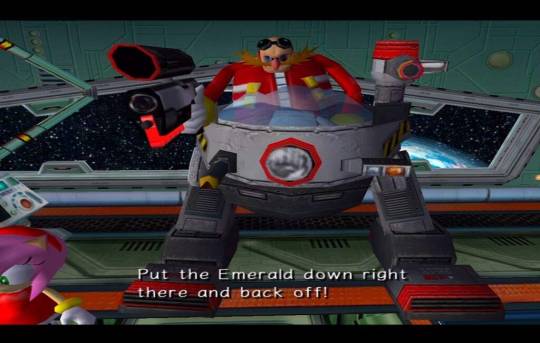
This is one of Eggman’s best scenes in the entire franchise and it makes it hard for anything else about Eggman in this game to bother me.
But then we get to Sonic Heroes. OK, first things first, I’m actually quite fond of this game. To me, Heroes is kind of like Generations where saying the story isn’t very good or kinda dumb feels a little unfair because it’s so very clearly not focused on story. It just wants to give a few cheesy cutscenes to get you to the gameplay as quickly as possible. And that’s honestly fine. Some games can just be gameplay first. Getting too bothered almost feels like judging the game for what it isn’t instead of what it is. That said, boy I don’t like what this game does with some of the characters. And Eggman gets it worst. Because he spends the entire game locked in a cellar and getting dunked on by the Chaotix while Metal Sonic runs around with his face being the actual antagonist. I dunno, for a such a fun and supposedly smart villain, it’s a little undignified don’t you think? For a game that brings together playable characters from across the series’ history, the main bad guy honestly gets the short end of the stick.
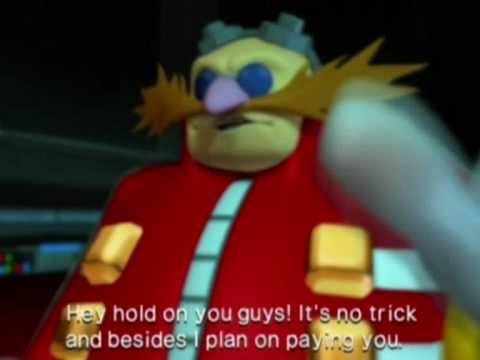
You know you’ve hit a low point when you’re the butt monkey of the series’ butt monkeys.
And then it just keeps going. Sonic Advance 3 has him betrayed by Gemerl and teaming up with Sonic. In Sonic 06 Eggman is little more than a distraction for Sonic while Shadow takes care of the actual plot. And then he teams up with Sonic…again. Even in my beloved Sonic Rush he’s playing second fiddle to his AU palette swap who the game seems convinced is the more threatening of the two (he isn’t), which Rivals doubles down on. In Sonic Unleashed we’re basically just doing Adventure 1 again so Dark Gaia is pretty much ‘Chaos reskin no. x’ who betrays Eggman and makes him look like a joke. It just gets really old and is a waste of one of the most entertaining characters. There are bright spots like Sonic Battle but they’re few and far between.

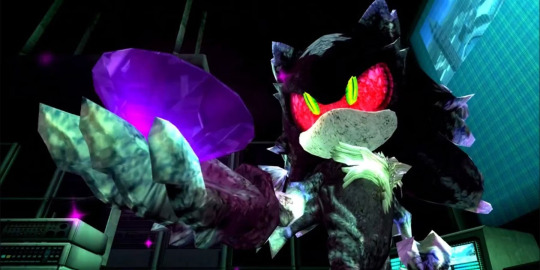
I can’t help but feel we’ve traded down here...
This is more frustrating because the games seem convinced that these villains are more epic, and dangerous and serious than Eggman. When honestly? Most of them are just really boring. I don’t care for how Heroes reimagines Metal Sonic. Him being convinced that he’s the ‘real Sonic’ is a cool idea, but having him turn into a giant dragon while ranting about world domination honestly misses the point of why his character as this silent but still expressive mirror to Sonic worked to begin with. And, I’m sorry guys. I really don’t like Mephiles. Yes, Dan Green kills it as a voice actor but aside from that his design is dull, he has the personality of a rock and his plan makes no sense. He does give Shadow some cool development but that’s more a testament to Shadow being a good character than Mephiles being a good villain. I really like the idea of Sonic having a rogues’ gallery of villains, but if you’re going to do that, make them good villains. And do it without throwing your main antagonist under a bus.
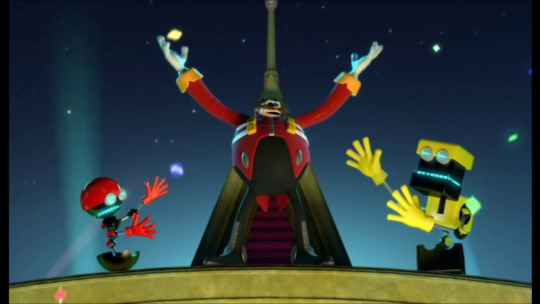
He’s back baby! And not a single JRPG reject in sight!
But then we get to Sonic Colours. Eggman is the main villain again. No evil god monster waiting to replace him. The closest we get is the Nega Mother Wisp in the DS version, and even then, she doesn’t really upstage Eggman. She’s just kind of a loose thread Sonic and Tails learn about after Eggman is defeated. And her current state is directly because of Eggman to boot. Plus, his goals here bring back that forgotten environmentalist undertone that was kind of abandoned when we started fighting evil god monsters, an aspect of Colours I’ve praised before. He’s industrialising planets, capturing and experimenting on the wildlife, all while using the same gaudy theme park imagery from Unleashed to mask his efforts. Yes, Colours has a lighter, jokier tone, and a lot of his dialogue is trading banter back and forth with the goofier Orbot and Cubot. But he’s still treated as a threat who has to be stopped. Plus, what with all the Eggman PA announcements, he tends to get the best jokes as well. I get that Colours’ writing is divisive but I rarely hear anyone complain about those.

“Out here living my best life.” “Isn’t Infinite dead?” “This isn’t about him.”
And the later games keep up the trend of not only keeping Eggman as the villain but playing on the expectation that he’ll inevitably get betrayed. Generations makes you think the Time Eater kidnapped Eggman and he’s just a pawn of this monster. Nope. He’s actually taken this alien demigod, converted it into a robot and had complete control of it. Lost World starts with Eggman getting betrayed by the Deadly Six and having to work with Sonic, which at this point is familiar ground honestly. Turns out Eggman was playing both sides, straight up fakes his death and then takes over the Deadly Six’s plan right under everyone’s nose. I don’t particularly care for the Zeti as villains or much of the rest of Lost World’s story but Eggman’s role here is honestly pretty great. Even in Sonic Forces, as rushed and tonally weird as it is, handles Eggman pretty well. Not only does he succeed in taking over the world but again, you kind of expect that Eggman will just get betrayed by Infinite right? Nope, when Infinite loses, Eggman takes the Phantom Ruby to finish the job himself. Again, I’m not defending Sonic Forces entirely, but I do appreciate a game that’s able to have villains other than Eggman without making him a joke (though I do think Eggman is kind of lacking in screentime in this game, and needed more instance to be his hammy charismatic self for this to really land as well as it could have done). Sonic Mania has one of my favourite takes on this. In general I really like the Hard Boiled Heavies and their varied designs and boss fights, but I especially appreciate how the Heavy King doesn’t just take the Phantom Ruby and upstage Eggman as the final boss. Instead, the final fight is a three-way clash between Sonic, Eggman and Heavy King all trying to take the Ruby. Eggman’s egotistical ‘only I can rule the world’ outlook means there’s a lot of potential in having him compete with other villains. But only a few Sonic games do this without making him a complete afterthought or joke next to the more ‘evil’ Big Bad of the game.
I won’t go into the side media because I’m not quite as familiar with them as the games. I could maybe touch on how I find X!Eggman a little too goofy (though he gets points for being genuinely funny) before he gets upstaged again by the Metarex. But in stuff like SatAM, Boom or AOSTH, he’s basically a completely different character so it’s almost redundant to discuss. And while I haven’t read the IDW comics, what little I’ve seen out of context gives me mixed feelings on how he’s handled, and while I’m cautiously optimistic for Ian Flynn writing for Frontiers, I really hope it’s not a sign that we’re getting more cases of ‘Eggman gets ignored and replaced by other, more forgettable villains’.

Though frankly if we get more stuff like this scene in the game, I may have nothing to worry about.
Put simply, I think Eggman is still one of my favourite characters in the series. I’m not opposed to having other antagonists in Sonic. But I don’t find any of the series’ attempts at more ‘serious’ villains have resonated with me anywhere near as much. I do think that when we have discussions about the ways Sonic as a franchise has changed across the eras, it’s important to look at the good and bad parts of each era, not just to say ‘old thing good, new thing bad’, tempting as it can be to do so. And I think Eggman is a really good example of why that’s a helpful perspective.
#dr eggman#sonic the hedgehog#sonic adventure#sonic heroes#sonic colours#characterisation#general ramblings
18 notes
·
View notes
Text
An (Incredibly Loose and Unfounded) Analysis of Dolcio Cioccolata

Content Warnings: Typical Cioccolata behaviour such as murder and manipulation. One mention of suicide. Discussion of child abuse.
(A/N: I do not know much about psychology, nor do I pretend to. Instead, I'm essentially going to be listing out headcanons of educated guesses about his motivations and behaviours based on his canon actions.)
Cioccolata is one of the most rightfully despised villains in the entirety of Jojo's Bizarre Adventure. Beyond his egotistical, rotten behaviour around other characters, the reason for his notoriety arguably lies in the disturbing reality of his evil. He isn't motivated by a cartoonish desire for world domination or an explicable feud with our protagonists that could really only arise in fiction, but a simple, sadistic desire to observe the suffering of others and revel in the power it gives him. Although he is in possession of a highly lethal stand, his weapons of choice are natural tools. Medical tools. He scares us, because his evil is grounded in reality.
One of the most perplexing things about Cioccolata's behaviour is the inconsistency in his demeanour. Despite initially appearing to be a flat, one-dimensional incarnation of pure sadism, he has a number of highly distinct moods that, despite their diversity, are all recognisably his. There's the manic joy that usually comes to mind when you first think of the character, but there are also moments of uncontrolled anger, fear, and even calmness.
It's the fact his emotional exterior can change very suddenly that makes it so unnerving. Notice how calm he initially appears when he carves into one of his victims during his backstory segment. Until the point he breaks into a sickening smile, there's not even a hint of a twitching lip to indicate his usual sadistic joy at doing what he loves.

There are other similar instances, such as occasions where he suddenly bursts into emotion during his fight with Giorno, or interacts very inconsistently with Secco.
One possible explanation for this behaviour is that he treats his life like a grand piece of drama in which he is the star actor. You know that trope of the actor character who's just a bit too full of himself and takes his performances to an obnoxious level of serious? That's how Cioccolata treats his whole life. It pleases him to turn every word, every expression, every movement of his limbs into the work of an intellectual genius, something the audience in his mind will clap and cheer for as he enters the scene.
Unlike Kira, a more major villain who follows the similar role of a serial killer who at least some of the time follows 'realistic' urges and methodologies in his crimes, we don't have anything in the way of an explanation for Cioccolata as to how his murderous urges arose. Nonetheless, I believe there are most likely some similarities between the pair.
Some might assume that the sheer brutality of Cioccolata's crimes would point towards a highly traumatic childhood, with abuses to rival the fates of some of his victims. In real life, while it is common for serial killers to have had such childhoods, they don't usually create the behaviour patterns seen in Cioccolata. Such killers often lash out against specific groups, women being a common target especially if the killer was abused by a maternal figure. As far as we know, Cioccolata has no specific target demographic other than the incredibly broad category of 'the weak.'
Additionally, we know from canon that Cioccolata was able to seek voluntary work at a home for the elderly at the tender age of 14, and judging by what he got away with, was clearly trusted by the institute's staff a lot. This would point towards Cioccolata having a family life that at least externally appeared respectable, and left Cioccolata stable enough to hide his deviancies where necessary.
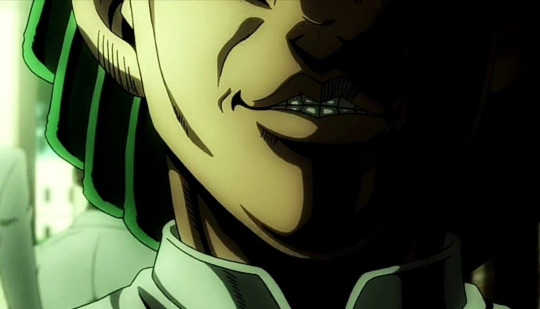
The backstory I have created for Cioccolata is a middle-ground between a childhood of abject misery and trauma, and a childhood of perfect normalcy (in which Cioccolata's evil would have arisen purely from nature).
It begins with Cioccolata's birth to a teenage mother, hailing from a wealthy conservative Italian family, and a foreign tourist who had already made his getaway months ago. The circumstances of the birth brought about great shame that caused the mother and child to be severely chastised by the rest of the family. Within a few years, the shame brought the young mother to a breaking point and resulted in her suicide, beginning Cioccolata's fascination with death.
After this, Cioccolata's life continued roughly the same. He did not mourn his mother as the pair never properly bonded and his grandparents continued to treat him with the same coldness. That was until, around the age of 10, it became undeniable that Cioccolata possessed a profound innate genius, and would likely go on to be incredibly successful. Suddenly, the boy was showered in praise and encouragement, teaching him the crucial lesson that love is conditional, and only owed to those who are strong.
On this subject, we arrive at the most tantalising question of Cioccolata's psychology, that being whether he is truly capable of love. The short answer is: yes. His love for Secco is genuine in the context of his own behaviour, and if he were to have lived a full life it can't be ruled out that he would have experienced love of some form again. Everything we see of Cioccolata's relationship with Secco points to a genuine love, from the way he apologises for throwing one of the sugar cubes too far to his heartfelt goodbye over the phone. Even if their relationship is unhealthy, Cioccolata has goodwill towards his companion.

The issue that then has to be reconciled is how Cioccolata is capable of this kind of companionship when the vast majority of the population are nothing but lab rats to him. In short, Cioccolata's morality is whatever he wants it to be. He is the ultimate worthy being and hence, if he cares about someone, he can break the rules of his philosophy to do so because, if they weren't deserving of it, why would someone so important as him have feelings for them?
You can take this back to the point about Cioccolata's life being a performance to him. We already know the fascination he experiences with fear, so perhaps he has similar curiosities about other emotions, like love? Perhaps having someone like Secco fills him with a grand sense of poeticism, as though he is the misunderstood hero of some acclaimed play, playing out the scene of a beautiful romance against the backdrop of a bloody tragedy.
If there's one thing to be taken away from this, it's that Cioccolata's entire existence, his whole world-view, is built around his self-importance. A fairly moot point, now it comes down to it, given everything about the character's actions, but it's interesting to see how this profound egoism plays out in his more subtler interactions. Perhaps it's not only the realism of his crimes that makes him so terrifying, but also the realism of the particular way he regards his fellow humans like dirt. If you survive him, it's for his pleasure.
75 notes
·
View notes
Text
Fair warning, these a little bit spoilery, but if you don't mind that I tried to be descriptive so you can choose based on your prefs.
Classic, solid answer: Guards! Guards!
It's the first in the City Watch series, it's a police procedural which doubles as a fantastic subversion of your classic dragon/damsel/long lost heir etc fairytale, centering people who would usually be background characters at best. This series deals with themes of duty/responsibility, social progress, the mundanity of evil, and centers Sam Vimes, a fantastic character and the best rebuttal to the "cop who doesn't play by the rules" trope. While the first book doesn't show this, the series has very strong characters development both for the characters and the city. If you want to see the most pathetic wet paper bag meow meow of a man transform into a veritable force of nature, this is the series for you. This series also heavily features fan favourite (and my favourite too) supporting character, Lord Vetinary, the tyrant of the city, amazingly complex and also surprisingly funny. Guy who plays into a cartoonish Evil Villain dictator persona to develop public services push through diversity initiatives and support unions. Other secondary characters include Carrot, guy who by all rights is clearly meant to be the Main Character with a Destiny who has decided he actually doesn't want to do that and would prefer just being a guard even as destiny repeatedly keeps bothering him. There's way more to him too but shh. Also Sybil, the dragon equivalent of a cat lady, and everything is amazing about her. Other books in this series deals with themes like gun control, war, racism/nationalism, class inequality, and much more. Three books in a character with a trans* (ish, dwarf genders are a bit funky) plotline happens.
Going Postal: another popular answer. It takes place in the same city, a while after the start of the city watch series (but I think before it ends?) It features Moist Von Lipwig, the most Named character ever lol. He's a con artist who is forced into civil service (by aforementioned Evil Tyrant, who also features heaviky here). Watch a sweaty man with a 404 error for an identity being forced to learn he is in fact a Real Person and his actions Do In Fact Have Consequences. Watch dude learn to care so much about smth he never thought he would. He's a character who thrives amidst chaos when 100000 things are happening and there's no time and he has to bluff on the spot. Also features Angry Chainsmoking Goth Gf. Also the main conflict is between a public service and a for profit company of an evil capitalist. Also there is a golem who gets a trans arc.
Monstrous regiment: it's really good. It's a standalone, although a couple characters from other series (Vimes, the newspaper crew) make an appearance. It's one of the most explicitly queer books with at least one canon trans character (and possibly more depending on interpretation) and canon a wlw relationship. Explores... Honestly a lot. Gender (both in the feminist and trans sense), religion, war… The plot is often described as a full regiment of Mulans, to give you some idea. There's a coffee addicted vampire.
Small gods: I'm biased since it's the last thing I reread from discworld but I genuinely think it's a masterpiece and one of the best dw books. It's a standalone, but maybe a little less light-hearted of a read BC of some of its topics, but it made me feel SO MUCH. In a good way. And it's still incredibly funny. In essence, Om is basically the old testament god, and has an entire theocratic nation dedicated to his worship. Except one day he comes down to check on things, and discovers that he actually has no power, because turns out none of them really believe in him, they just believe in the church. This means he ends up trapped in the body of a small and entirely powerless tortoise, and the only person who can hear him is the last person who actually believes in him: Brutha, a nobody in the church, generally considered a bit thick. The book deals with religion (in strong part Christianity, Brutha is an obvious jesus parallel), obviously, but it's not a book about people believing in gods, per say. It's a book about a god who has to learn to believe in/care about people. There is very strong symbolism, so many banger ideas, and the development of both the leads and the dynamic between them is insane. There's also a lot of comedy in an old testament god stuck in the body of a tortoise yelling biblical curses at people who don't give him lettuce. Oh and the villain is absolutely terrifying.
Various Death suggestions: Death shoes up in pretty much every discworld book, and he's absolutely iconic. Honestly, feel free to pick up any other series and see what you think when he shows up. I actually wouldn't necessarily recommend Mort, the beginning of the death series, per se, as the place to start. It's good, but honestly you can come back to it and I think some of the later death ones are more fun. There's also not quite so much need to read them chronologically imo. Reaper man is about death getting fired for liking humans too much, and deciding to spend the time he has before his successor eliminates him among humans... And learning what mortality actually feels like, which absolutely terrifies him. At the same time, his absence means that nothing dies, which causes a very chaotic B-plot which involves a geriatric wizard who is quite annoyed he's a zombie and can't die like he wants and a sentient shopping mall. The death line is amazing and emotional, the B plot is zany. Then there's Hogfather - someone takes a hit out on Santa, so while death fills in for him, his badass granddaughter must solve thid and stop the murder.
The witches: I started here! Technically starts with Equal Rites (a girl wizard breaks gender) but id recommend starting later like with Wyrd sister (hamlet spoof). Features Granny Weatherwax, one of the Most Characters Ever. She was my role model as a kid. I don't even know how to explain her. She's a witch. She's so stubborn it's an actual superpower. She wants to go aowahit all of the time but grits her teeth and does the right thing anyway. Her version of good is doing the tough things that nobody else wants to do because someone has to. "good isn't nice". She astral projects into animals so often she has to label herself "I aren't dead" while she does BC ppl have tried to bury her. She's SO good. She lights fires by glaring at the wood. A vampire once but her and instead of her craving blood THE VAMPIRE began to crave tea and biscuits. She's ace. Meanwhile her bff is a hypersexual jolly old witch with so many ex husbands and a myriad sons. It's been a while since I read these so I can't rec specifics... But yh
Last Hero is a short book and it's a mashup of several series - there's carrot and the librarian (he's an orangutan) and the patriciamn from city watch series, there's wizards and rincewind (the rincewind series is fun but don't start there). The book features the last heroes (classic heroic fantasy is a dying genre here yknow) who are rlly old and have yet to die in battle (because nothing can kill them) to go to Valhalla... So, as their last stand they decide to... Return to the gods the fire the first hero stole. I.e., to blow up the Olympus equivalent. Unfortunately, this would end the world. As such, a task force is assembled to stop them. And takes a shortcut thru space.
I tried reading the Discworld series, but unfortunately the first book didn't really do it for me. Then I found out that even Terry Pratchett himself said it's not a good starting point, lol.
But I still don't know about a good alternative starting point, because I saw like a million different opinions on that. Could any of Tumblr's Discworld fans possibly help me out? I kind of want to get into this series, but not knowing where to start makes it so intimidating :/
105 notes
·
View notes
Note
I’m sure I’m retreading old points on the sonic movie here with my thoughts, but it always surprises me when I hear people say jimbotnik should influence or replace game eggman
It’s like, I enjoyed the sonic movie for what it is, a fun enough family/kids movie with a simple plot and enough jokes that actually landed for me. Heck I even enjoyed jimbotnik- but not bc I felt he was a good eggman, more bc he felt like a self-insert evil/mad scientist robot creating genius I would have written for my own use. Am I happy he’s getting a little more eggman in the sequel? Of course. Do I want him in any other sonic thing? No. Unless it’s like crossover stuff- that I could at least see possible.
He’s just not an eggman to me, just eggman inspired and I’m happy taking what I can get for the movie sonic stuff but it always stuns me when people call him a good eggman. I’m just not sure where people are seeing it? It’s like did we play the same games with eggman in it?
The movie sonic stuff’s dear to me but I’ll always hope for a proper animated movie in a similar style of the unleashed opening as many others do I’m sure. Give me more animated game egg he’s a delightfully cartoonish man with a stellar design and just fun attitude. He can be dramatic and serious and silly and dangerous. And it’s great such a character can be an ongoing threat, even if the games really haven’t really written that the best lately
That hasn't been brought up as much here but it is a fear of mine. I don't see people saying they want him to be replaced with jimbotnik and if people have been saying that, that's even worse. I have seen people saying that they'd like jimbotnik to have an influence/impact on og Eggman in a few ways though and I'm really not on board with that. I'm also hoping that, like all the other separate universes and non canon media, they keep it entirely separate.
It's interesting to see this take from the perspective of a fan of the Sonic movie/jimbotnik. Some people say I just have this opinion because I don't like the movie as a whole but we have the same opinion of jimbotnik not being very Eggman like. He's definitely not the best version, Imo the best can only be the most definitive to both Eggman's true essence, design, and personality, which I don't think jimbotnik delivers.
At the very most he does just seem like a villain that takes inspiration from Eggman with some of his key traits of personality and a tiny amount design wise. But it's missing all the context/presentation/essence that actually makes it feel like Eggman. Anyone can have those traits and have a mustache, there's more to it than that for it to actually make it feel like him specifically. That's why I feel he could've easily just been a separate Eggman inspired villain the way he is.
I've seen people make comparisons and points about what jimbotnik is faithful to what makes og Eggman so great but I just don't see it or feel it because all I can see is jim carrey and the sequel trailer hasn't changed that either. When I play the games, I see a completely different villain that's super appealing to me in both design and personality. He feels much more unique with his beautiful cartoony fun design and his evil and egotism has very different vibes.
And yeah, that's really all I want too. I've been dreaming of a fully CGI animated movie for years before the Sonic movie was a thing. I've wanted it to look exactly like the breathtaking high quality detail and animation in Unleashed since 2008. The Wreck it Ralph movies are now the closest we've ever gotten to my dream of CG Eggman in a movie that exists and I really hope that will change someday with an actual full length CGI Sonic movie.
Unleashed's CGI was also a taste of what I think the perfect Sonic movie would be. It had the epic intense atmosphere, insane detail, and fantastic bouncy cartoony animation that would be so amazing to see on the big screen. Especially with Eggman being the perfect balance of energetic cartoony fun with beautiful realistic detail. Seeing that gorgeous Egg on the big screen and to hear Mike Pollock's Eggman voice blasting from those cinema speakers... 🥰💜 I need it so badly in my lifetime, you have no idea.
Eggman is a fantastic character just the way he is in the games, he's such a unique truly evil and threatening villain that can also be super goofy and funny. He's endlessly entertaining and refreshing in both design and personality from so many other villains in a way that I don't feel jimbotnik captured. The same goes for the entire Sonic game universe, I've always loved it more than any other Sonic media because it has so many beautiful unique and exciting locations that are better than any live action setting can be. I really want a movie that's faithful to the games more than anything, it would be amazing!
10 notes
·
View notes
Text
Psycho Analysis is a series that looks at villains across various media in the hopes of coming to something of a consensus on the overall quality of the character. Are they performed well? Do they enrich the narrative? Are their motives fleshed out? Are they voiced by Tim Curry and thus a sex icon?
There are a lot of important questions that I look into, but ultimately, Psycho Analysis boils down to asking one simple little question: How bad can a character be?
Thankfully, there’s one villain who decided to answer that question for me... in song form.
Psycho Analysis: The Once-ler
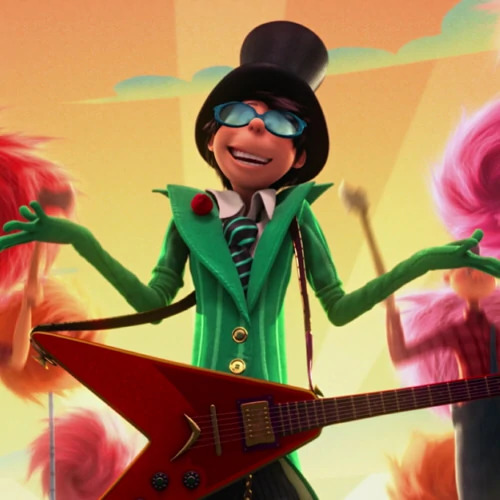
(WARNING! This analysis contains SPOILERS!)
Yeah, I’m finally talking about everyone’s favorite greedy bastard who, back in some of the darkest days of Tumblr history, ended up being the premier sexyman on the website. People were thirsting over this twiggy weirdo, acting as if he were God’s gift to women and shipping him with alternate versions of himself. Much like the movie he’s from, he is now incredibly hard to take seriously.
But hey, speaking of alternate versions of himself, I’m going to be covering him from the original book and the animated short film as well. Might as well just knock it all out of the park at once, right? Now let’s see how ba-a-a-ad this guy can be.
Motivation/Goals: The Once-ler is all about biggering. He’s making thneeds (things that everyone needs) and he is gonna stop at nothing to craft these things. Not even the power of the Lorax, Danny DeVito or otherwise, is going to stay his hand from getting that sweet, soft Truffula fluff to make his wares. This is ultimately a little unrealistic, at least for the Illumination version; if Danny DeVito asked me not to do something, I’d listen, no questions asked.
Performance: In the animated special, Bob Holt does double duty, as he is portraying both Once-ler and the title character. It works really well for what they’re going for, and the double casting is interesting because it highlights the ultimate role of the Lorax as the Once-ler’s conscience given form.
In the film, Ed Helms portrays the Once-ler, and he’s fine. He’s certainly better casting than Audrey, but that’s not particularly saying much considering that’s a non-singing Taylor Swift (when Cats is able to utilize Taylor Swift better than your musical, you know there’s trouble). I don’t know, Ed Helms is fun and all, but I’m just not sure his take on the Once-ler is all too compelling overall.
Final Fate: In the original book and the special, the Once-ler wins… but even he realizes it’s a terrible, pointless victory, and all he has achieved is ruin, his family leaving him, his business ultimately collapsing, and the environment permanently damaged. He’s left as a miserable, jaded hermit, broken by the bleak consequences his greedy actions have sown upon the world and only able to tell his story and pass on the last Truffula seed in the hopes that maybe, maybe someday the trees can regrow and the Lorax will return. The Illumination version follows this but then tacks on a happy ending where the Lorax and Once-ler reunite because as we know ambiguity and bittersweet endings cannot exist in children’s films.
Best Scene: Obviously it’s the scene where he shakes his ass to seduce Jack Frost, in one of the greatest gay romances ever put to film.
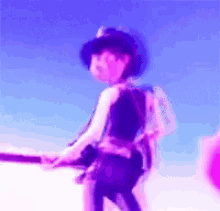
Joking aside, it is undoubtedly his villain song. It has become such a meme, but real talk? “How Bad Can I Be” slaps. This is a really good song, probably too good for the movie but you know what, I’ll take it.
youtube
Best Quote: HOW BA-A-A-AD CAN I BE? Yes, I’m using a line from his villain song. Sue me.
Final Thoughts & Score: What can one really say about the movie version of the Once-ler that hasn’t already been run into the ground? Well, how about… He’s not too bad, honestly? Like, yes, he has next to nothing to do with his book counterpart and they really go way too far into trying to make a capitalist pig sympathetic… but the animated special from the 70s did that too. I think the Once-ler honestly works better when there is a dash of complexity to him and he isn’t just a simple-minded Captain Planet villain.
Of course, the issue here is that the 70s version took a simpler approach, kind of less is more. The 70s Once-ler brings up some valid points to the Lorax about his work, and the Lorax can’t help but agree that there’s no easy answer while also stressing that the environmental devastation is still really, really bad. It works, it feels complex, and it arguably helps the ultimate point that we need to protect the environment better than even the book did (and I love the book, don’t get me wrong, but its take on the Once-ler is a bit too simple for its own good; it almost runs into the Femme Fatale problem by being a bit too much of a strawman). The movie version has a bit too much going on, especially with his family. His family are much more blatantly evil, greedy, and manipulative, but they’re relegated to the background for much of the film and don’t effect things all that much. The whole narrative would have been infinitely stronger if they were the greater scope villains behind Once-ler and were who needed to be defeated and maybe taught a lesson, but instead they are ignored in favor of someone I’ll address very shortly.
All of this leaves movie Once-ler feeling extremely disjointed, but not irredeemably so. As I said before, his villain song is unironically awesome, and as lame as it is compared to the more haunting, contemplative ending of the book and the special, I’m not so much of a curmudgeon that I didn’t at least smile when he finally reconciled with the Lorax. Ultimately though, him being memed to death really didn’t help his case, but it means I’m not giving the movie version anything less than a 3/10. He might in fact be the best “so bad it’s good” villain ever, or at least up there. He’s just so undeniably enjoyable even if the narrative isn’t making him as complex as it thinks it is. The animated special version gets a 9/10, the book version is a 7/10, and the Once-ler’s family gets a 5/10 for being an interesting concept they sadly do little with, which will now be elaborated on as I follow up on the foreshadowing from the last paragraph...
Psycho Analysis: Aloysius O’Hare
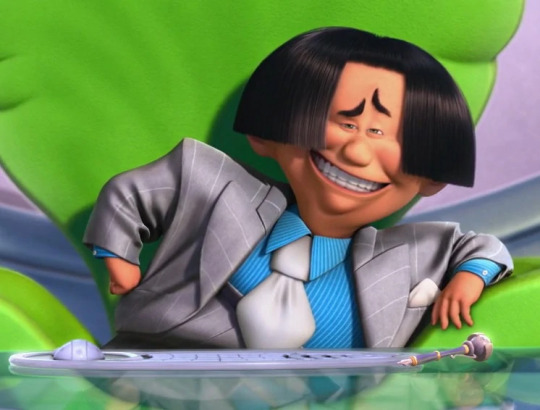
Remember how I said the Once-ler’s family gets ignored in favor of someone else? Here he is, Aloysius O’Hare, one of the absolute lamest villains ever put to screen.
Motivation/Goals: He’s greedy. That’s it. I’m not kidding. He’s just a cartoonish caricature of a rich person, which still makes him a realistic portayal but also makes him boring as sin compared to the wacky dude with a big musical number about how bad he can be.
Performance: Rob Riggle does a decent job, but there’s really not much for him to work with here. This character is a cardboard cutout who exists to be as cartoonishly greedy and evil as possible with no nuance so the kids know who to root against and so that Once-ler doesn’t look bad in comparison.
Final Fate: Look, he’s a blatantly evil corporate villain in a kid’s movie about the environment. Of course he gets defeated and everyone turns on him. What’s especially funny though is that, on the brink of learning his lesson, he rejects any form of redemption and just goes whole hog on being a villain.
Best Scene: I will absolutely give him this: in the face of his ultimate defeat, after having the virtues of trees sung to him and the entire town turning on him, he for a moment contemplates turning over a new leaf… and then absolutely rejects the thought and instead decides being evil is just too much fun, at which point he tries to get everyone back on his side by seeing a funny little song about death while wavedashing. If more shitty villains did this, I don’t think there would be shitty villains.
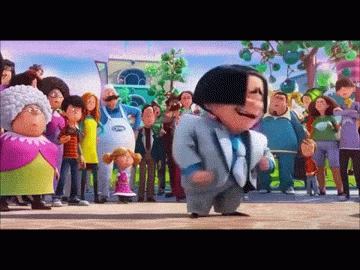
Best Quote: LET IT DIE, LET IT DIE, LET IT SHRIVEL UP AND DIE! Yes I’m quoting a song again.
Final Thoughts & Score: Look, I’m not gonna mine words here: O’Hare sucks. Big time. He is a prime example of why The Lorax failed as an adaptation. In a story that is dealing with a moral grayness with no easy answers, O’Hare is just a big, blatant target, a dark shade of black in terms of black-and-white morality. He’s like a reject Captain Planet villain with Edna Mode’s haircut.
The movie would have been infinitely better if, instead of him, the Once-ler’s family were in control of the town, and they needed to learn the lesson about saving the trees instead of simply vanishing from the story. They were shown to be overbearing, manipulative, and greedy, and they had a much more personal connection with Once-ler being, you know, his actual family. The fact they abandon him and never really get any sort of comeuppance despite being perhaps the most evil people in the move, egging on Once-ler and taking full advantage of him, makes O’Hare all the more egregious, because there could have been some strong thematic elements that would have tied the film together and made it come off as much less preachy and more nuanced.
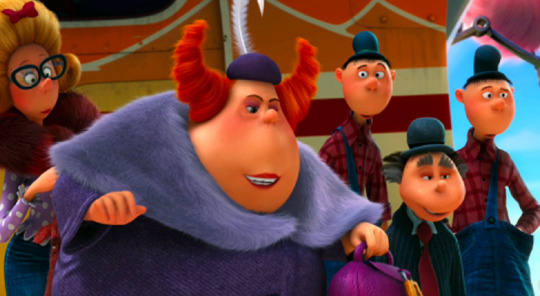
But we don’t live in a world where that happened, we live in a world where we got O’Hare. Aside from some genuine hilarity from him at the end, O’Hare really adds very little to the film. I gotta give him a 2/10, but I will say he’s a lot closer to a 3 than he is to a 1; there’s no denying his absolute rejection of learning a moral is absolutely hilarious. I love when villains do that. It’s just a shame those funny moments are wrapped up in something monumentally unimpressive.
37 notes
·
View notes
Text
The Princess Bride: The Characters, Part 2: The Sicilian Crowd, the Villains, and Conclusion
When we are first introduced to Inigo, he’s not exactly a glowing example of heroism. A former alcoholic, Inigo is a Master Swordsman, working as a mercenary, he is one of the trio who first kidnaps Buttercup (under Humperdinck’s orders). He’s fine with the abduction itself, but shows a few of his true colors when he objects to murdering her, already proving himself a little more decent than Vizzini, the leader of the band.
A little later, during the duel with Westley, much is revealed about Inigo, more in fact than you ever learn about the backstories of either Westley or Buttercup: the story of his father’s murder and his own desire for revenge, so strong that it has encouraged him to dedicate his life to mastering the art of fencing. The duel, exciting enough from an action and comedy standpoint, also clues the audience in on a few other key details: Inigo isn’t really all that bad of a guy, just a man on a Roaring Rampage of Revenge, again demonstrating the same duality (just reversed) that Westley does.
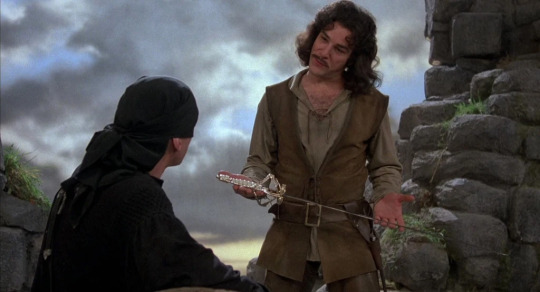
Despite not having as much screen time and focus as Buttercup and Westley, Inigo is the Breakout Character of The Princess Bride, a Determinator, the Lancer of the film. As I mentioned, he’s also the character we receive the most information about, learning that he is a man of honor, good hearted, and loyal through his interactions with other characters, notably Westley and Fezzik. Thanks to his sympathetic backstory and one-track mind, he’s understandable to the audience: we know everything about him and why he is doing everything. He’s totally transparent in the best way, he makes sense, and the audience roots for him. They care about him, even when he’s initially introduced as a more villainous character (albeit one with truly hilarious lines). The audience arguably has a stronger attachment to him than they do to Westley and Buttercup, which is very unusual, especially when Inigo disappears for a while after Westley defeats him in battle.
In a way, Inigo would seem to have the qualities very necessary to carry a film: tragic backstory, sympathetic motivation, understandable actions rooted in very clear character traits, and indeed, a lot of elements that put him in the Hero camp. And yet, like Buttercup and Westley, while some things fit him into this mold, others don’t.

Although he doesn’t have a connection to Humperdinck (aside from him being a distant employer), he does have a very strong tie to the main villains of the story in Count Rugen.
Rugen is, of course, the six-fingered man who murdered Inigo’s father so many years ago, and scarred Inigo himself. It is he that Inigo is out to get throughout the entire film (and his entire life), a much stronger tie to an individual character in a personal way than Westley’s nemesis: Humperdinck. Rugen is much more of an arch-nemesis, representing a very personal loss to Inigo, something that cuts much deeper, even, than true love. While Westley never seems particularly worried about himself or Buttercup because he just knows that True Love will keep them together, Inigo reacts very strongly to Rugen and his own emotional journey, traits more typically associated with a protagonist than a cool confidence in how everything will turn out.
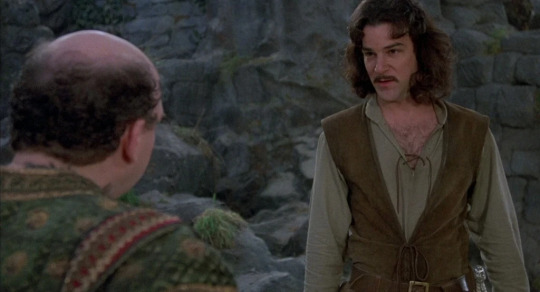
As a direct result to this personal stake in the story, Inigo, being at full strength and in full health, is the one who is given the final climactic battle at the end of the movie.
Where Westley has a rather anticlimactic confrontation with Humperdinck, Inigo gets a huge duel with Rugen, the climax centerpiece, the scene most memorable and most quoted in the entire film, ending in Inigo actually achieving his goal: getting revenge. Afterwards, he even muses that after having gotten his revenge, now he no longer knows what to do with his life, with the film implying that he will become the next Dread Pirate Roberts in Westley’s place.
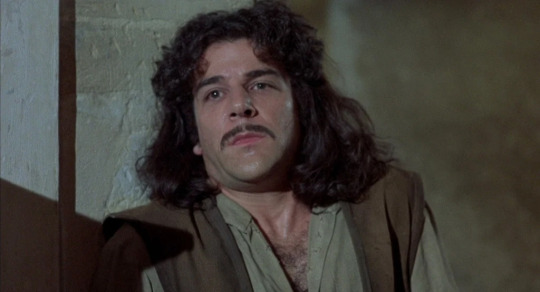
Unlike Westley, and even unlike Buttercup, Inigo has an arc, pursuing what he wants actively, achieving it, and moving on. He makes choices that have huge consequences in the plot: pursuing revenge, leaving Vizzini, finding Westley and bringing him to Miracle Max. In a way, a huge part of the story is Inigo’s, just as much as it is Buttercup and Westley’s.
Westley has the Heroic qualities, Buttercup has most of the focus (and her title in the movie’s name), and Inigo has the dramatic arc and climactic battle. On their own, no one character manages to pull off the full requirements for being a fantasy protagonist, or even a protagonist at all, but together, they manage to make one complete protagonist between them. While the story of The Princess Bride, in plot beats and story elements, seems very much like your very traditional fairy-tale story, in terms of protagonist, the execution is actually very complex. By taking the traits of a protagonist and dividing them equally between three characters with varying levels of screen-time and activism within a story (not always at the same time), the story manages to get the audience’s interest invested in not one, but three characters equally, weaving the major threads for each of their stories in amongst each other to keep it all tied together. And in the end, both the characters and the audience (even the Grandson!) feel closure and satisfaction.
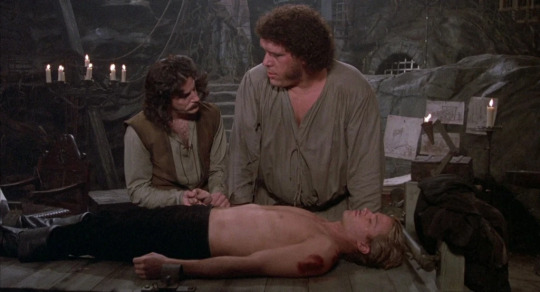
But Inigo, Westley and Buttercup aren’t the only characters in the film. Every story needs their supporting cast, and none are quite as supportive as Fezzik.
Fezzik is a Gentle Giant. He’s big and strong, for sure, but he’s also very kind, the Big Guy with a heart of gold who, while not exactly being a pushover, isn’t out to hurt anybody who doesn’t deserve it. He’s the Brute of Vizzini’s Beauty, Brains, and Brawn trio, and manages to subvert the Dumb Muscle stereotype. He’s not terribly clever, but he does have a wit and intelligence to him that isn’t typical of most fairy-tale giants.

He and Inigo are borderline inseparable, and much like Inigo, Fezzik is somewhat okay with kidnapping Buttercup for money, but he’s considerably less approving of killing her. Like Inigo, he is a man of honor, preferring to fight Westley in a ‘sportsmanlike’ way instead of clubbing him over the head with a rock like Vizzini first suggests. He’s a good, loyal friend, rescuing Inigo from the palace guards, sobering him up, and then accompanying him throughout the rest of the story in finding and reviving Westley and then storming the castle.
Unlike Inigo, Westley and Buttercup, Fezzik has no stake in this story. He has no goal to achieve here, no personal mission. After Vizzini, his ‘boss’, is killed, there’s nothing keeping Fezzik in the story except his own will, like the Chewbacca to Inigo’s Han Solo. He’s here because of his loyalty and concern for his friends. He just wants to help, and help he does, turning his back on his mercenary ways pretty easily and without any real convincing. He’s along for the ride, a supporting character that manages to be more than just ‘the comic relief’. (In a way, one of the smartest things The Princess Bride did in terms of its characters was to make everyone funny, so no one is relegated to ‘just’ the comic relief.)
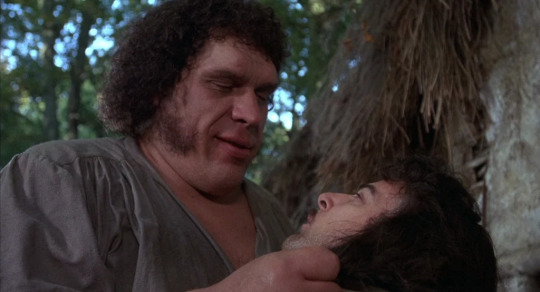
With that said, Fezzik still remains an active character in the story, helping with the storming of the castle and providing the Muscle (and the heart!) for the mission, and providing the escape by finding Humperdinck’s four white horses in his stable.
Starting out as a Minion with an F in Evil, Fezzik ends The Princess Bride as one of its most memorable and loved heroes, a kindly figure of support who’s anything but minor.

Which is more than we can say for the deceased leader of the trio of kidnappers: Vizzini.
Vizzini is the smartest of the trio sent to abduct Buttercup, but despite his bragging, he demonstrates hints that he’s not half as smart as he thinks he is. The brains to Inigo’s beauty and Fezzik’s brawn, Vizzini is merely a Big Bad Wannabe, the final obstacle for Westley’s initial reunion with Buttercup, a Disk One Final Boss before the plot kicks off with portraying Humperdinck as the real villain. However, while the film points out that Fezzik and Inigo fight Westley with honor, and he leaves them respectful of their talents (defeating them in the process), Westley shows no such respect for Vizzini’s ‘talents’, and simply Out-Gambits him, despite Vizzini’s Poisoned Chalice Switcheroo. In the end, Vizzini is Too Clever by Half, and is the only one of the Sicilian Crowd to be killed, most likely due to his arrogance.
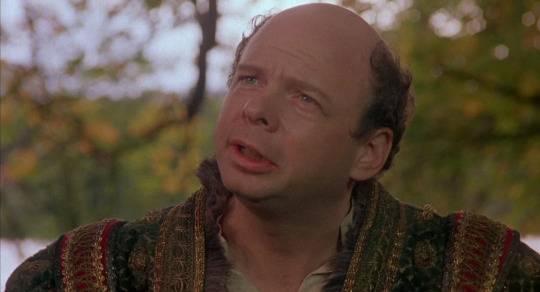
Despite his death being one of the most memorable scenes in the entire film, Vizzini doesn’t receive much screen time, or even narrative weight, in comparison to the true villains of the movie. After all, Vizzini is only a hired stooge, a pawn in Humperdinck’s evil plan.
Humperdinck, as far as fairy-tale villains go, isn’t terribly impressive. He’s no great dragon or emperor, or evil wizard. He’s just a prince, a man with a lot of power who’s used to getting his own way. He does plenty of rotten things along the way (torture Westley and kill him, order Buttercup’s kidnapping, attempt to kill her) but in the end, his goal isn’t world-domination, or wealth, or anything like that: he’s just after an excuse to go to war with the neighboring country. He’s not after Buttercup for her beauty, like many other fairy-tale villains before him, he’s just after her to use as a political figure, aiming to kill her after their wedding night and pin it on Guilder.
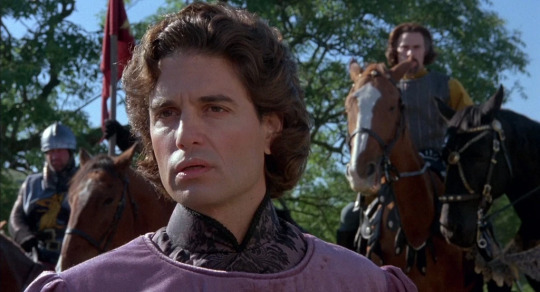
Arguably, this makes him worse.
There’s no great, over-the-top explanation for his villany. He’s not cartoonish or after traditional fairy-tale things, he’s actually after something that we’d see in the real world. He is the true Big Bad, the Chessmaster, The Evil Prince obsessed with war, who, ironically, happens to be a Dirty Coward.

Oddly enough, throughout the film, although Humperdinck is presented as the Archenemy of Westley, there’s no real personal connection between them. This isn’t like Beauty and the Beast, where both men are vying (in their own way) for Buttercup’s affection. Humperdinck honestly couldn’t care less about Buttercup, viewing her as a tool to get what he really wants. In the end, he rushes through a marriage ceremony in order to murder Buttercup after the wedding, again, nothing personal, just business. His only connection to Westley is happening to choose the wrong girl to murder.
As such, as opposed to Count Rugen’s thematically resonant demise, Humperdinck is actually allowed to live, and go free at the end of the story, which seems to be a big-time rule-breaker in terms of fairy-tale storytelling. The Grandson himself expresses irritation and disbelief at this fact, after all, villains should be punished, not sternly talked-down by a paralyzed hero.

Yet, that’s what happens. Considering that the most Humperdinck managed to do was temporarily kill Westley, he gets very little ‘revenge’ in return. Like I said in the Story article:
Westley couldn’t care less about Humperdinck other than the fact that he’s getting in the way of his and Buttercup’s storybook love. Humperdinck is an obstacle to his true goal and drive, and he’s not worth the killing. Once he’s out of the way and Westley and Buttercup are reunited, Humperdinck ceases to matter to Westley. If the story had been from Miracle Max’s point of view, Humperdinck would have died or at least, have something more horrible happen to him, but since Humperdinck never really succeeded in doing much of anything throughout the story, he’s actually so pathetic that he’s not worth Westley’s time.
So, yeah, Humperdinck is left to live with his cowardice because his death wouldn’t have provided the characters anything except maybe catharsis, and honestly, that’s not really a good enough reason to off your villain
He’s such a coward, he doesn’t even have a chance to take part in a climatic duel. He’s so unimpressive as a fantasy villain that he even strips the audience of their chance to see another sword fight, without diminishing his hatefulness and narrative weight as a villain.
Thankfully, the audience does get their climactic battle: thanks to Count Rugen.
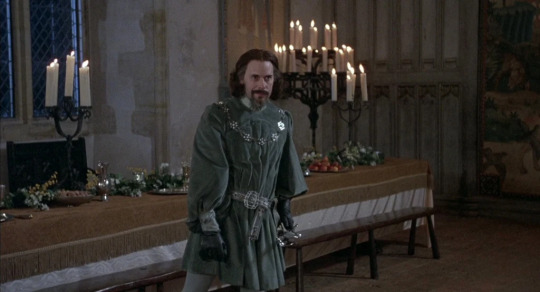
Rugen is Inigo’s archenemy, rather than Westley’s, and unlike the rivalry between the main protagonist and antagonist, Rugen’s relationship with Inigo is very personal indeed. Rugen, the six-fingered man that Inigo wants to hunt down and kill so badly, is the man who killed Inigo’s father, and left him scarred as a little boy. Rugen is the Dragon, a Soft-Spoken Sadist who serves as Humperdinck’s Right Hand Man and Torture Technician. He is the inventor of the torture machine that ends up taking Westley’s life, and throughout the film, serves as co-conspirator to Humperdinck.
He’s pretty rotten, and just like Humperdinck, proves himself to be a Dirty Coward too.
However, while Westley let Humperdinck live with that knowledge, Inigo offers Rugen no such mercy.
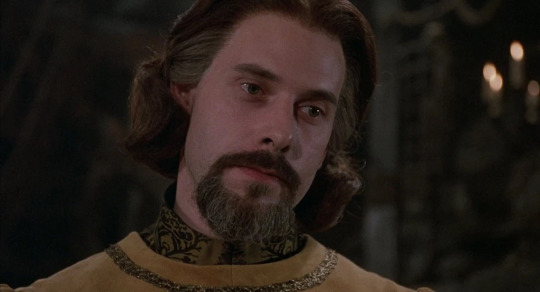
The final duel between Inigo and Rugen is one of the show-stopping setpieces of the film, paying off a considerable amount of buildup foreshadowed with much of Inigo’s dialogue and character. Like I said in the ‘Story’ article:
On the other hand, Inigo’s villain, Count Rugen, is killed, for a very simple reason: that’s the logical end to fulfill Inigo’s story.
In order for Inigo to feel fulfilled and gain satisfaction, to lay his father’s spirit to rest, Rugen has to die, knowing why he’s dying, and who it is who killed him. In a sense, the antagonists fit the ‘antagonist’ bill much the same way the protagonists do: by splitting the roles, from Humperdinck having the main plot being responsible for most of the obstacles, where Rugen fills in for the emotional punch instead.
There are other characters too, of course: Miracle Max and his wife Valerie, offering a comedic look at a few other residents of Florin, The Albino, Rugen’s assistant, The Impressive Clergyman, and even Yellin, the captain of the guard, but for the most part, these characters (aside from Miracle Max and Valerie being responsible for resurrecting Westley) serve as comedic filler, without much actual narrative weight.

As fairy-tale archetypes with surprising amounts of dimension, the characters of The Princess Bride all do their jobs with ease, falling into natural roles in an organic fashion, despite the unconventional structuring of the characters’ parts to play.
The beauty of all of these characters is that none of them are in the slightest bit realistic. These are very clearly ‘fairy-tale’ characters, who don’t think about things in the way that we do, and yet, the audience still relates to them, is entertained by them, is concerned for them. Even though characters don’t act in terribly realistic ways, they are motivated by things that we understand: love, revenge, etc. The audience feels and understands their emotions, and therefore understands where characters are coming from, even if the actions taken by the characters are primarily ‘fantasy based’, superhuman, incredibly skilled and heroic or villainous in the context of the story that the Grandfather is reading to the Grandson.
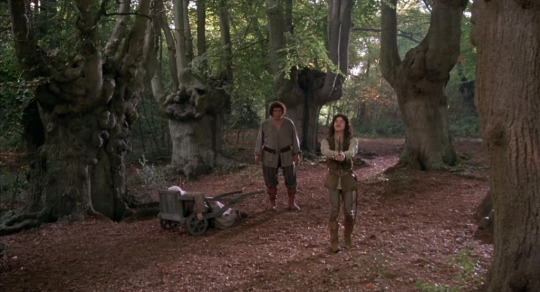
The Princess Bride’s characters are not portrayed as ‘people’, instead being played as simple characters typical of traditional ‘fairy-tale’ stories. Each character, whether hero or villain, behaves almost as though they know what part they inhabit, playing the ‘fairy-tale’ aspect straight, with a comedic edge to the archetypes found in a book, a familiar-feeling, simple, but emotional story that people have loved and laughed with for decades.
The characters of The Princess Bride serve their purpose incredibly well: making the audience care about what happens to them. Every role is memorable, unique, distinct, with plenty of quotes and character tics to be referenced and replicated decades later. They perfectly match the film they belong to: a fantasy classic that has finally been Vindicated by History, gaining it’s rightful place among fantasy greats.
Thank you guys so much for reading! If you have something you’d like to add or say, don’t forget that the ask box is always open! I hope to see you all in the next article.
#The Princess Bride#The Princess Bride 1987#1987#80s#Adventure#Comedy#Family#Fantasy#Romance#PG#Cary Elwes#Robin Wright#Mandy Patinkin#Chris Sarandon#Christopher Guest#Wallace Shawn#André the Giant#Peter Falk#Fred Savage#Rob Reiner#Film#Movies
34 notes
·
View notes
Text
No kidding (though I disagree with Lucas's view of bad guys thinking they are good. I can name plenty of real life bad guys who not only know full well they are indeed very bad people, but actively enjoy it. Tamerlane Khan is one such example. As is the Marquis de Sade. Karl Marx and Vladimir Lenin are also arguable examples going by some choice statements they made. Disney villains are actually surprisingly and horrifyingly realistic in that regard. Well, most of them anyways. I'd argue Gaston was if anything VERY cartoonish despite technically never actually saying he's evil mostly because his badly written reprise.). I personally wasn't sure about the Darth Plagueis novel's take on Palpatine mostly because it was a bit too unbelievable regarding what he got away with (Even with Plagueis's role in hiding his crimes, usually those types still leave behind SOME crumbs. I'm pretty sure someone would have at least had a suspicion of Palpatine's true nature rather than everyone being fooled hook line and sinker by him). Ironically, the Plagueis novel DID actually have one instance of genuine compassion from Palpatine at one point: Namely, Palpatine made sure to provide accomodations to Anakin upon his arrival on Coruscant. What makes this action compassionate rather than his usual manipulations is that at that time, he didn't suspect him to be Force sensitive, didn't sense him to be that, and most certainly didn't even know at the time that he was likely the result of their Grand Experiment (in fact, it had to take Dooku outright telling Palpatine this for him, and by extension Darth Plagueis, to even realize Anakin's likely connection to that prophecy). Since he clearly didn't know Anakin was the chosen one or even a byproduct of their experiment that time, he had to have been engaging in genuine, natural compassion (and having only one other possible instance of this in his lifetime: When he saved Darth Vader and tended to him on the beaches of Mustafar, something Ian McDiarmid himself noted was a redeemable, or at least humane trait).
Oh yeah, and Force Heal being a Dark Side trait wasn't just from the Sequel Trilogy: Legacy of the Force had that as a major plot point for Cade Skywalker, where he was gifted with healing and bringing people from the brink of death, and his own master chewed him out on this ability because it was innately a Dark Side ability, even when he saved him.
On a side note, since we got into the Luceno book, and the overall questioning of the Force's actual moral views, the narrative especially regarding Palpatine ends up strongly implying that Palpatine HIMSELF was born from the Force the EXACT same way that Anakin was born (ie, the Force impregnated Cosinga's wife), and unlike with Anakin where they explicitly reacted to the Grand Experiment to create Anakin for the purpose of destroying the Sith largely BECAUSE of that bit, there's literally nothing to indicate that Palpatine's conception, assuming indeed that he WAS indeed conceived by the Force itself, had even been influenced by outside factors (ie, that it was the direct result of a Grand Experiment-esque event that violated the Midichlorians). I mean, think about it, Palpatine is literally the only actual Force user in his family (none of his younger siblings showed any capacity in the Force, nor did his dad Cosinga, nor even his mom); his dad had strong enough doubts about Palpatine even BEING his son at all that he forced the latter to take a paternity test twice, and based on Palpatine's description of his mother, the lady was practically a doormat to her husband, blindly submissive even against Cosinga's genuinely AWFUL personality, possibly had battered wife syndrome, meaning she was EXTREMELY unlikely to even consider the possibility of cheating on his dad (more due to being effectively a slave to him than truly loving him in any case) and said devotion was one-sided at best due to Cosinga having absolutely NO qualms having a side mistress purely for his own benefit based on the father and son's final [and fatal] spat and what his son said. And more tellingly, Plagueis when first meeting Palpatine had his legitimency ability not work on him, which had even him note was unusual, and presumably could not even SENSE Palpatine was a Force user until then. Almost a mirror for what happened with Qui-Gon and Anakin when they first met, and Qui-Gon only starting to suspect Anakin was at least force sensitive when learning from Shmi that Anakin was, quite literally, "born without a father." Oh, and get this, going by the In-Media-Res opening, the Force DIRECTLY communicated with Palpatine shortly after the latter's murder of Plagueis, outright telling him they are one and the same, coupled with a vision of countless voices proclaiming Palpatine's reign (and that last bit was based on an Old Testament reading... that foreshadowed JESUS'S rule). Not even Anakin, the actual Chosen One, ever communicated with the Force to THAT level. It creates some rather unsettling implications about the Force itself that it is likely Palpatine was willed into existence by it (and by "unsettling implications", I mean the same kind of thing JRPGs push where God is the ultimate bad guy, like Bhunivelze from Final Fantasy XIII, Ultimalius from Final Fantasy XVI, and Bahamut the Bladewielder from Final Fantasy XV [well, sort of regarding the last one, as that was more the result of a tie-in novel Dawn of the Future that was created from scrapped DLC plans]). Come to think of it, that would also explain why, despite being a wholly devoted adherer to Sith philosophy and, by his own admission, the very embodiment of the Dark Side, Palpatine going by old RPG books in Legends was also fully capable of using Force Healing (and not just any form of Force Healing, but specifically the Light Side version), something especially unusual for a Sith Lord.
“The bad guys think they’re good”
“One of the issues in all of this is that the bad guys think they’re good. And Lord Sidious thinks he is brining peace to the galaxy, because of so much corruption and confusion and chaos going on. And then now he’s going to be able to straighten everything out. Which may be true, but the price the galaxy’s gonna have to pay for it is way too much.” - George Lucas, Revenge of the Sith Commentary
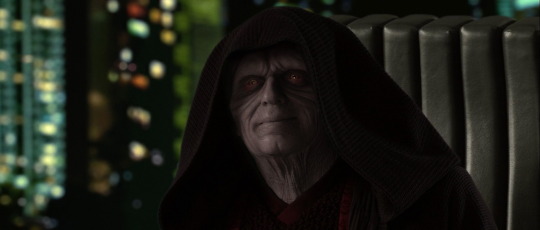
18 notes
·
View notes
Text
Not as Bad as All That: Bring on the 3D Villains
More than once, I’ve read a book that I considered pretty good, but the villain was so cartoonish and two-dimensional that it ruined it for me. Disclaimer: books are only as good as their characters for this reader. Nothing, but nothing, can make up for shallow characters. And a cardboard villain is a deal-breaker.
The principle is always that fictional characters, no matter how quirky or exceptional should be true to life. You should be able to recognize them on the street, so to speak. You should be able to love them, despite their foibles, just as we do our foiblous family and buddies. OK, maybe just a little bit.
Love That Villain
But a villain should be evil, you say. He’s plotting to blow up the world—or steal the hero’s girl, or something BAD. True, but I would submit that no sane human being is without some attractive qualities. No one is without some interior rationale for what they do. Often the person we consider a villain simply has a different agenda than we, or their point of view is skewed by their past. That’s why backstories are so important in characterizing your villain. It should be possible to feel a sneaking sympathy for him or her. Would a little remorse, a little internal conflict make their evil actions less evil? It would certainly make them more human. People who slash out at others are often in pain themselves. You may have noticed that kids frequently identify more with the villain than with the hero. Why? An outcast? Someone who feels he has to prove himself? Or maybe he’s just a more interesting, nuanced fellow.
The Mug Shot
So what does a villain look like? If you believe the pulps, they are often deformed or scrawny. Or else impossibly handsome and polished, with an impossible (and it usually is) armory of high-tech weapons at their disposal. They are probably smart because these are not your bully boys. The latter are big and muscular, generally ugly, but not smart. They’re the goons of the villain. Sounds like we have some stock characters here, doesn’t it? Alas, bad novels are full of them. I recently read a historical (in another language, so no toes stepped on here) where it was pointed out repeatedly that the villain had a hyena-like laugh. Overkill. In fact, bad people are just people. They look—and laugh—like everybody else.
Soften ‘Em Up
Unless one of your points of view is that of the villain, it may be a little harder to work some humanity into her. But the way other people view her may be telling. Are her henchmen devoted? Does she love her cat? Does she at least have good manners? Is her motive for evil an altruistic one? An editor once commented that one of my villains, a completely mad one, was the most delightful character in the book. But evil, nonetheless. Bwa-ha-ha-ha!
#writing tips#writing a villain#writing bad guys#writing books#book tips#character tips#design#writing#hacks#workshop#writing hacks#author tips#novelist#writing life#characters#how to write villains#villain#evil#super villians#3d villains#NL Holmes#fiction writers#fiction writing#tips#how to#fiction#fictional writing#fictional
13 notes
·
View notes